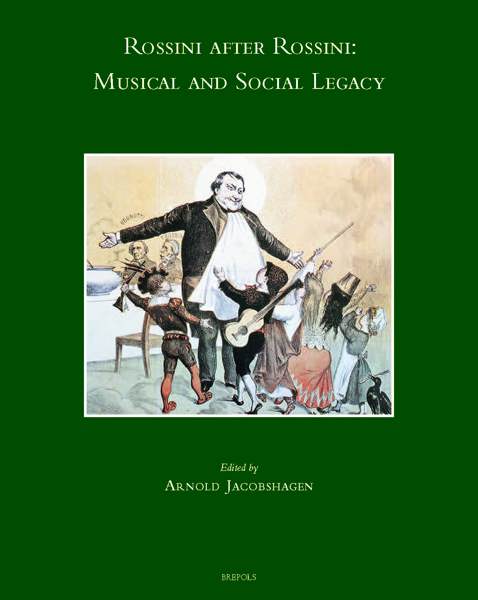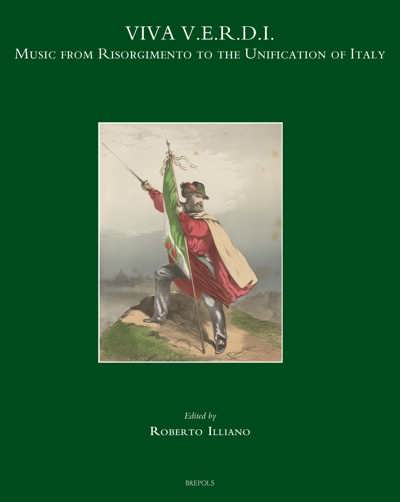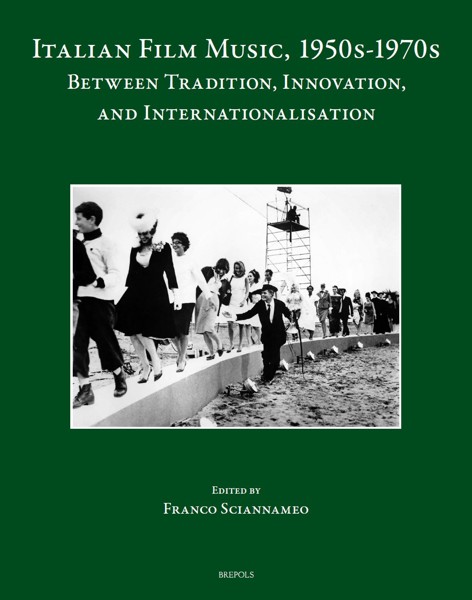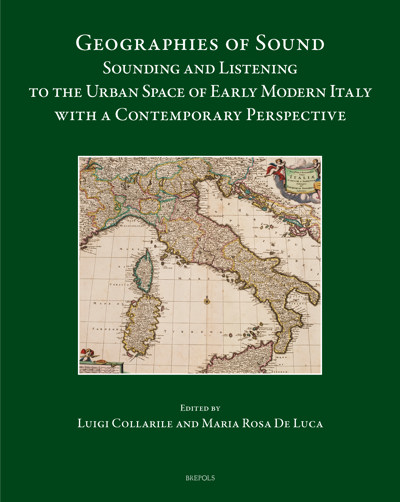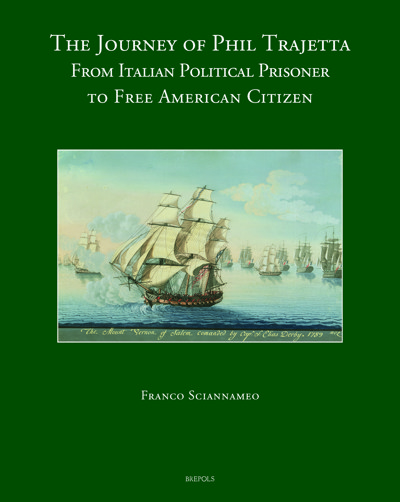
- Pages: 436 p.
- Size:210 x 260 mm
- Illustrations:30 b/w
- Language(s):English, Italian, French
- Publication Year:2020
- € 120,00 EXCL. VAT RETAIL PRICE
- ISBN: 978-2-503-58820-9
- Hardback
- Available
The volume explores Rossini's reception and the dissemination of his operas in the 19th and 20th centuries
« Son originalité scientifique consiste à dépasser la seule question de l’héritage musical, sans l’escamoter bien sûr, pour embrasser les effets sociaux et culturels du rossinisme après Rossini. L’enquête est d’autant plus passionnante que le phénomène Rossini a dominé le premier XIXe siècle pour refluer rapidement (…) » (Olivier Bara, in Revue de musicologie, 108/2, 2022, p. 492)
Arnold Jacobshagen is Professor and Chair of Musicology at the University of Music and Dance Cologne (since 2006). Specialist in the history of opera and music from the 18th to the 20th centuries, he is the author of five monograph.
This volume reflects on Gioachino Rossini (1792-1868) and the international reception of his work 150 years after his death. Rossini was the most influential opera composer of the first half of the 19th century. His exceptional position in contemporary cultural life and the international success of his works meant that monuments were erected during his lifetime and biographies, novels and plays about him appeared. The volume explores his literary reception and the dissemination of his operas in the 19th and 20th centuries in various countries, focusing in particular on stylistic and compositional legacy, the theory and practice of operatic singing, treatises and biographical memoires, and Rossini’s position in politics, society and public opinion. Translations and adaptations of Rossini’s libretti are analyzed with regard to their functions within in the performances in different cultures and languages. Several chapters address the influence of Rossini and his music on other composers such as Giacomo Meyerbeer, Ottorino Respighi and Ferruccio Busoni. The fame that once surrounded Rossini, however, has been lost in the course of time, and many of his works fell into oblivion. The last section of the volume sheds new light on the so-called ‘Rossini Renaissance’, the revival of his works in the second half of the 20th and the beginning of the 21st centuries.
Arnold Jacobshagen, Preface
Rossini’s literary reception
Jehoash Hirshberg, The Appreciation of Rossini: Two Phases
Arnold Jacobshagen, Final Curtain: Commemorating Gioachino Rossini
Matthieu Cailliez, Ricezione di Rossini nella stampa musicale internazionale tra il 1868 e il 1918
Renato Ricco, «Dominio del genio» versus «agilità dell’estro»: Giuseppe Rovani di fronte a Gioachino Rossini
Stéphane Lelièvre, «Rossini» de René Fauchois (1920), ou quand le compositeur monte sur scène
Rossini on the International Stage
Paolo Fabbri, «Zelmira», un’opera da esportazione?
Marco Beghelli, Singing Bodies: The Visual Metamorphosis of Rossini’s Arnold from «Canto di grazia» to «Belting»
Vesa Kurkela – Markus Mantere, Rossini in the Grand Duchy of Finland: A Review of Public Reception in the 19th Century
Agnieszka Muszyńska-Andrejczyk, Rossini and Poland: Libretto Translations and Presence in Polish Theatres in the Past and Today
Vjera Katalinic, Rossini on the Musical Stage in Zagreb (1850-1880): Repertoire and Reception
Miguel Angel Ríos Muñoz, Rossini en español, la transformación de ópera en zarzuela
Víctor Sánchez Sánchez, «Resilience» rossiniana nel furore wagneriano a Madrid (1875-1910)
Rossinian Influence on Other Musicians
Tom Mébarki, Rossini: un (post)moderno? Dal classicismo al neoclassicismo. Il potenziale rossiniano nell’estetica musicale neoclassica: il potenziale neoclassico nell’opera buffa rossiniana
Maria Birbili, Rossini in Meyerbeer
Federico Gon, «Oh! It’s a Great Thing to be Rossini»: Verdi from the «Sinfonia in Do» to «Un giorno di regno»
John Lam Chun-fai, «Gamme chinoise» as Rossinian Notion
Roberto Scoccimarro, «Hovering Above Profundity with Smiling Lightness»: Lines of Affinity between the Aesthetics of Ferruccio Busoni and the Comic Theatre of Rossini
Rossini Renaissance
Zoila Martínez Beltrán, «Rossini’s Rosina Resists the Test of Time»: A 20th-century Spanish Soprano Generation Focused on «Il barbiere di Siviglia»
Olga Jesurum, La riscoperta del «Turco in Italia». Dal Teatro Eliseo al Teatro alla Scala
Marco Pollaci, The Revival of Rossini and His Critical Reception in Italy between 1950 and 1960
Reto Müller, «Il viaggio a Reims»: The Cult Opera of the Rossini Renaissance
Arnold Jacobshagen, Beyond the Renaissance: Rossini Today
